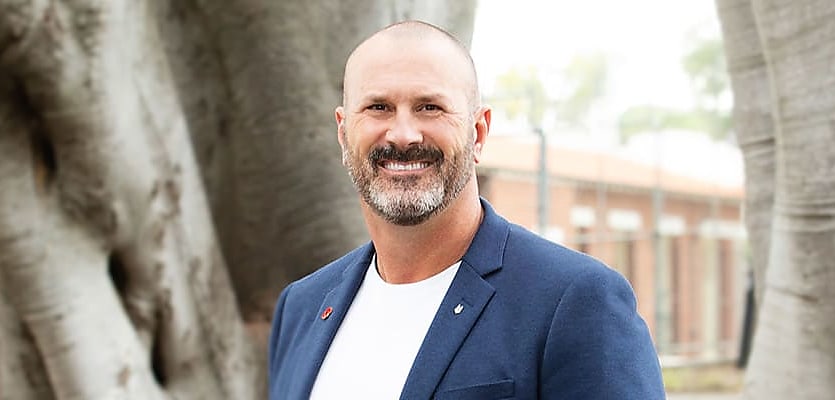The best in the business knows that success entails fostering a thriving workplace culture where your team feels valued, motivated and empowered to excel.
Having run my own successful real estate agency with over 50 team members, and now, as CEO of Harcourts Western Australia where I get to serve and assist some of the country’s best agencies, I have firsthand insights which confirm it requires a whole lot more than just closing deals to build a great business.
Easy to say, but how is it done?
Everyday psychology for success
One powerful framework that can guide you in achieving this is Self-Determination Theory (SDT). Developed by psychologists Edward Deci and Richard Ryan, SDT emphasises the importance of satisfying three innate psychological needs: autonomy, competence and relatedness. By understanding and applying these principles, you can create an environment where your team not only wants to stay, but thrive.
Autonomy
Due to the constant changes and dynamic nature of the real estate market, being inflexible, rigid and slow to react can have negative consequences on your business. We overcome this by empowering our people to make decisions within their area of expertise, to keep flow and momentum.
Our people need autonomy and the freedom to make decisions, set goals and execute tasks in a way that aligns with their strengths and preferences, and the client’s needs. More critically, micromanagement and “snoopervising” stifles creativity and motivation, leading to disengagement and decreased performance.
Instead, empower your team by providing them with the autonomy to manage their workload, prioritise tasks and exercise judgement in their interactions with clients. Encourage your people to pursue their leads, explore innovative approaches and make decisions that drive results. When employees feel trusted and empowered, they are more likely to be engaged, motivated and committed to their work.
Competence
As a leader, it’s essential we provide opportunities for growth and learning for our people. Investing in coaching, training programs, workshops and resources that enable your team to enhance their knowledge and capabilities is key to retention and recruitment. Whether it’s mastering negotiation techniques, mental fitness, staying updated on market trends, or leveraging new technologies, ensure that your people have access to the tools and resources they need to succeed.
Plus, it’s equally important to celebrate your team’s achievements and milestones, whether it’s closing a significant deal, surpassing their personal best, or obtaining industry certifications. By fostering a culture of continuous learning and development, with recognition, you not only boost individual competence but also elevate the overall performance of your business.
Relatedness
Simon Sinek summed it up beautifully when he said: “Humans are pack animals. We work better together.” In essence, we are inherently social beings, therefore creating a safe environment where your people have a sense of belonging and connection is essential for satisfaction and wellbeing. We do this by encouraging collaboration, open communication and teamwork within your business.
Create opportunities for people to build strong relationships with their colleagues, clients and the community, while maintaining their external relationships. Finally, foster a supportive and inclusive work environment where everyone feels valued, respected and appreciated. Acknowledge and celebrate their contributions, and encourage a culture of recognition and appreciation. When your people feel a sense of belonging, they are more likely to be motivated, engaged, loyal to the organisation and willing to go the extra mile when needed.
Influence of Daniel Pink’s Drive
Daniel Pink’s book Drive has an enormous impact on the way I lead. It delves into the science of motivation, shedding light on what truly drives individuals to excel in their work. Pink identifies autonomy, mastery and purpose as the three key elements that lead to intrinsic motivation and satisfaction.
These principles align closely with the tenets of Self-Determination Theory, emphasising the importance of autonomy, competence and relatedness in fostering a motivated and engaged workforce. By empowering your people to take responsibility for their work outcomes, providing opportunities for skill development and growth, and aligning their work with a larger sense of purpose, leaders can create a work environment where individuals feel fulfilled, motivated and eager to contribute their best.
Pink’s insights serve as a valuable complement to Self-Determination Theory, providing actionable strategies for building a successful team and maximising performance and satisfaction.
Richard Branson’s influence
One of the most recognised, successful “people first” leaders is Richard Branson, the renowned entrepreneur and founder of the Virgin Group. He is a shining example of a leader who prioritises the wellbeing and empowerment of his team. Branson understands the value of creating a positive workplace culture where people feel valued, respected and motivated. He famously stated: “Clients do not come first. Employees come first. If you take care of your employees, they will take care of the clients.”
Branson’s philosophy underscores the importance of prioritising employee satisfaction and wellbeing as a foundation for business success. By creating a culture of trust, autonomy and support, Branson has built a loyal and dedicated team that is committed to delivering exceptional results. His approach serves as a powerful reminder that investing in your team pays dividends in terms of productivity, innovation and overall success.
Conclusion
By incorporating the principles of Self-Determination Theory into your real estate agency, you can transform your workplace culture and drive long-term success. Together, the philosophies of Richard Branson and Daniel Pink reinforce the importance of investing in your team’s wellbeing and growth, leading to increased productivity, customer satisfaction and profitability. By prioritising your team’s autonomy, competence and relatedness, you create a workplace where employees not only thrive but also find fulfillment and purpose in their careers, often resulting in your clients receiving the “finest experience”.
Shane Kempton is CEO of Harcourts WA.









You are not authorised to post comments.
Comments will undergo moderation before they get published.